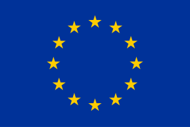Webinar: Farm to Fork, Why a sustainable food strategy is the only option to solve today’s and tomorrow’s crises, 30 May
The webinar, Farm to Fork – Why a sustainable food strategy is the only option to solve today’s and tomorrow’s crises organized by EU Horizon 2020 project FoodSHIFT2030 took place 30 May, as part of the EU Green Week.
This webinar, chaired by Dirk Wascher, Innovation Manager of the FoodSHIFT2030 project, brought together several of experts to provide their insights on the topic of the necessity of a sustainable food strategy to overcome crisis to come. Among the speakers was our colleague, Silvia Schmidt, Policy Associate Manager at IFOAM Organics Europe. Along with her, Vicki Hird, head of sustainable farming at Sustain, the Alliance for Better Food and Farming in the UK, Christian Bugge Henriksen, Project Coordination at FoodSHIFT2030 and Olav Kjørven, Senior Director of Strategy at EAT.
Silvia’s intervention summarized the political developments following the war in Ukraine regarding the Farm to Fork strategy, especially the attacks of the conventional agricultural lobbies and agrobusinesses lobbies in light of the alleged food security issues and the answers of civil society, researchers, and public institutions to these. They emphasized the necessity of implementing the Farm to Fork Strategy as this is the only way to build food systems likely to resist to crisis like this one.
Following on this, Vicki highlighted the current vulnerability of European food systems, and zoomed on some key issues such as the land use framework that needs to be rethought but also nutritional security, that encompasses the food aspect as well as the farm strategy. Finally, she called for a better connection between urban, peri urban and rural areas. It is on this topic that Christian continued and provided insights on how the cities and rural areas could be connected, and which benefits would arise from this. The role of cities and cooperation between different local EU food system projects has been emphasized, as well as the cooperation between local initiatives and national policies. Finally, Olav focused on the need to define healthy diets and implement them, with the support of cities and local actors.
The event ended with questions from the audience. As a question was raised about the future of the Farm to Fork and the possibilities to accelerate its implementation, Silvia reminded that everyone needs to be bring along this transition including the farmers that are the cornerstone of this strategy. She also pointed out the potential of the Sustainable Food Systems law, an initiative of the European Commission that is planned to be carried out in 2023: this aims to define what Sustainable Food Systems are.
Visit the FoodSHIFT2030 website to learn more and follow the latest project’s developments on Twitter and LinkedIn, Instagram and YouTube using @foodshift2030.
FoodShift2030 will launch an ambitious, citizen-driven transition of Europe’s food system to a low carbon, circular future. This Horizon 2020 project is promoting food systems innovations in nine cities across Europe. More information about the nine FoodSHIFT Labs is available on the FoodSHIFT2030 website. Follow the project on social media using @FoodSHIFT2030 on Twitter, Instagram, YouTube and LinkedIn.
IFOAM Organics Europe contributes to the conceptual framework for further development of governance strategies and food policy strategies. We will also disseminate project outputs within the organic network and at our main events.

FoodSHIFT 2030 has received funding from the European Union’s Horizon 2020 research and innovation programme under grant agreement number 862716. This communication only reflects the author’s view. The Research Executive Agency is not responsible for any use that may be made of the information provided.

